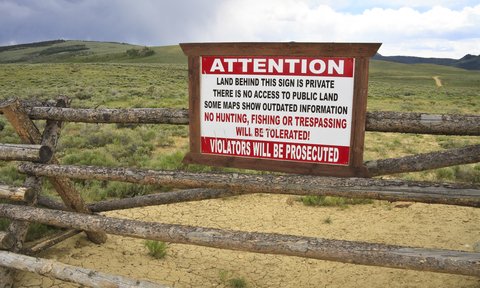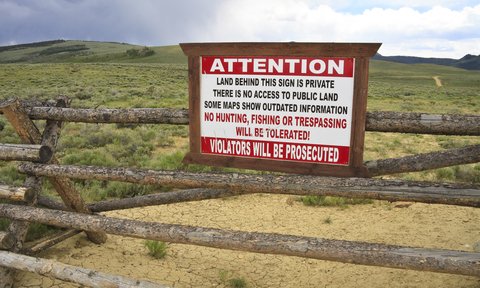
With many public lands overrun with hunters during the fall, it is not uncommon for hunters to seek hunting opportunities on private land. However, there is a right way and a wrong way to approach landowners about hunting on their land.
In popular hunting regions, many landowners are overwhelmed with unsolicited requests to hunt their property. Many face trespassers who do not even bother to ask permission. Some are so fatigued from dealing with hunters, they have no interest in giving anyone permission to hunt their property. This is why hunters who want any chance of securing a hunting opportunity on private land need to take a professional approach.
The first rule in approaching landowners is to not show up in person. Do not just drive up to the house and knock on the door. Landowners may have dozens of hunters knocking on their door and they will likely turn all of them away.
A better approach involves doing some research. Identify of handful of private properties that you would like to hunt. Then use property records to identify the landowners. Ask around and see if you know anyone who knows the landowners. If you do, try to find out how willing they would be to allow someone to hunt their land.
Once you have a list of properties, the next step is to write a professional sounding letter to the landowners, not unlike a letter you would include with a job resume. State that you are interested in hunting on their property. Include any hunting experiences that may shed a positive light on you as a hunter. For example, were you a certified youth firearms educator? or were you president of the local sportsmen’s club?
It is also important to include some references. Can the mayor, police chief or local pastor vouch for you? List your place of employment and use your supervisor as a reference. If you belong to any credible community organizations like the Lions Club or Rotary, make sure to include them in your letter.
One of the most important aspects of the letter should be an offer to trade your work for the opportunity to hunt the property. Are you willing to do manual labor on a farm? Maybe you are a tax accountant and could do the landowner’s taxes for free. Maybe you are a mechanic and could offer to fix a vehicle or piece of machinery. The chance to hunt on private land does not typically come free. If you can offer the landowner a skill in trade, your chances increase dramatically.
Another important aspect of hunting private land comes after you receive permission to hunt. Use the utmost care when hunting. Do not leave trash lying around or damage anything on the property. Hunt only at the times you have agreed upon with the landowner. Be polite and respectful.
Once your hunt is over, send the landowner a thank you note or a small gift to show your appreciation. If you treat your relationship with the landowner in a professional manner, you are likely to build a strong relationship that could secure a long-term opportunity to hunt the land for years to come.
Photo credit: Dreamstime








